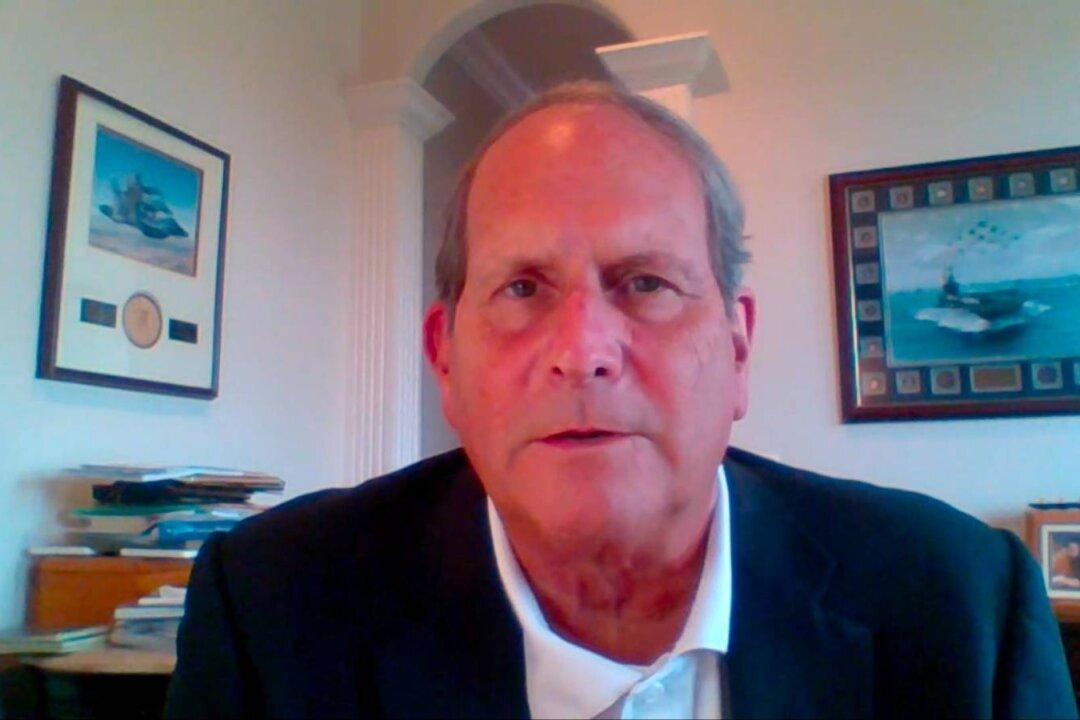If the United States opposes a Chinese invasion of Taiwan Beijing, will be unlikely to take the island because the Chinese economy will not withstand the potential sanctions and possible separation from the global economy, said James Robb, former TOPGUN commander and retired Navy admiral.
“For China to cut itself off from the United States economy would be really almost like setting himself on fire,” Robb said on EpochTV’s “Crossroads” program.






